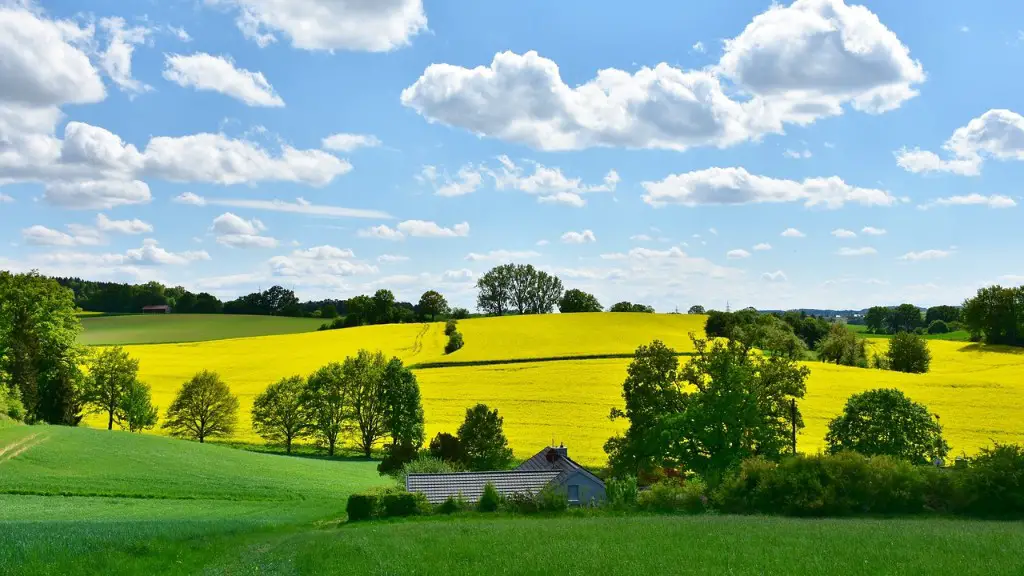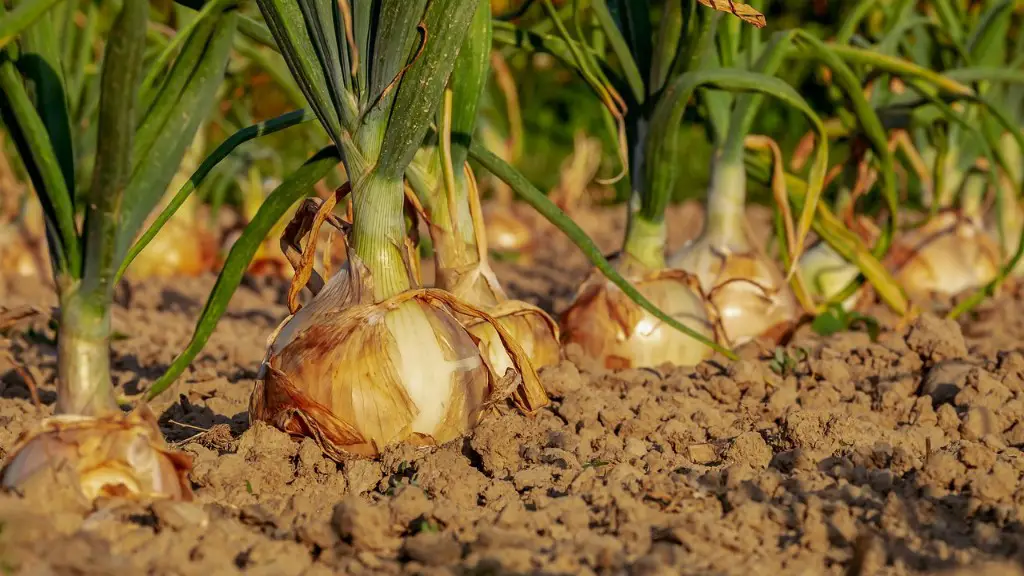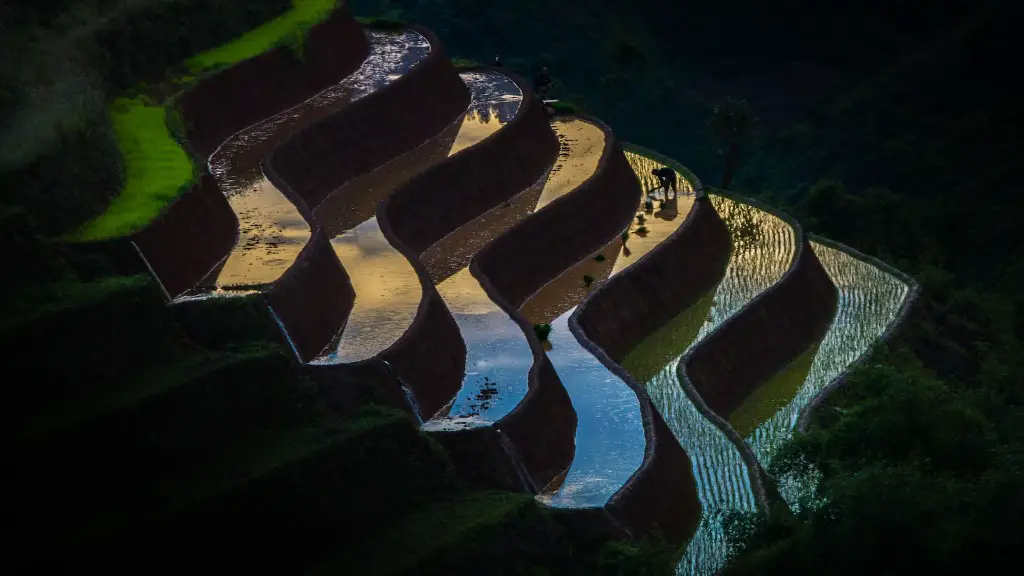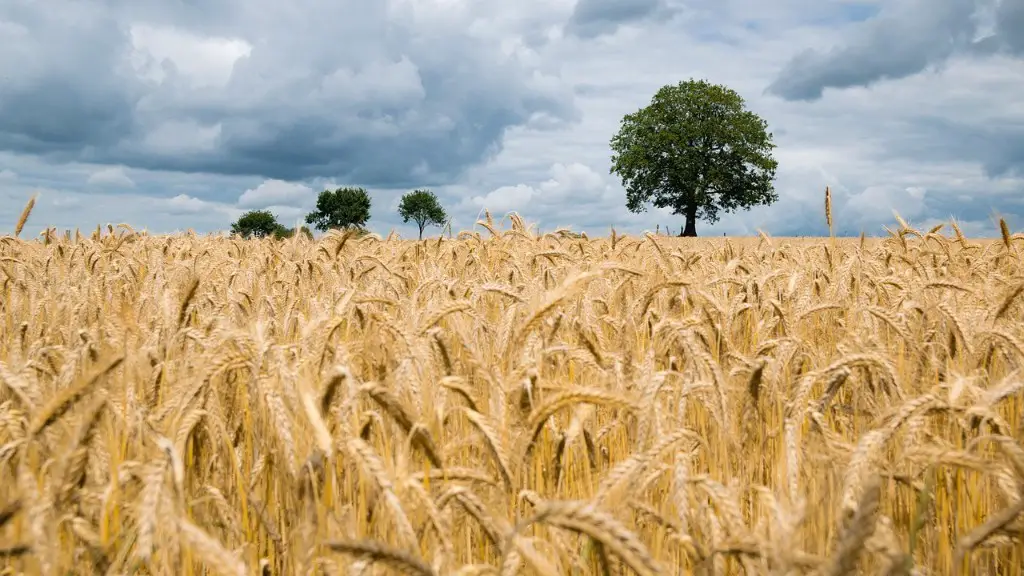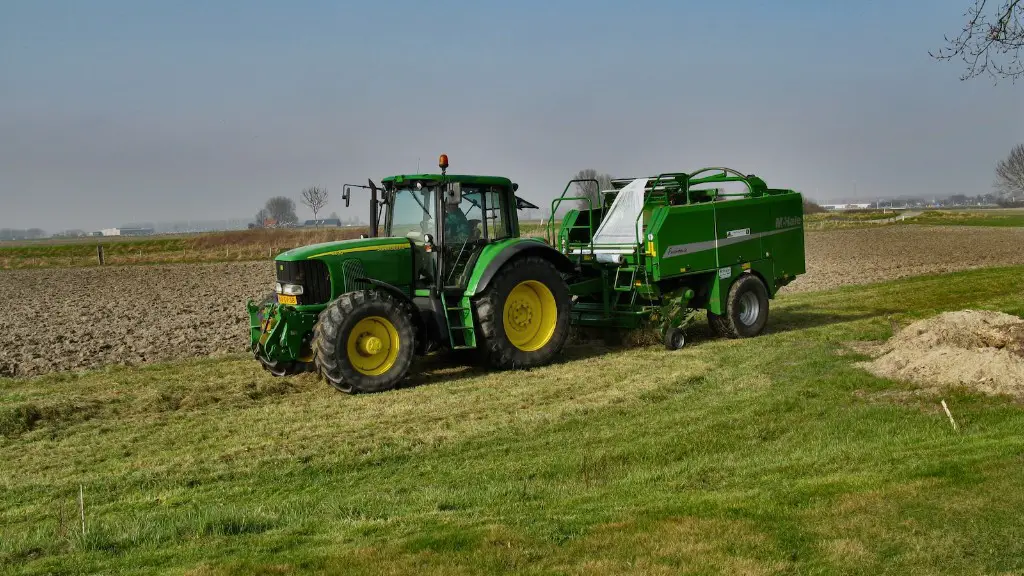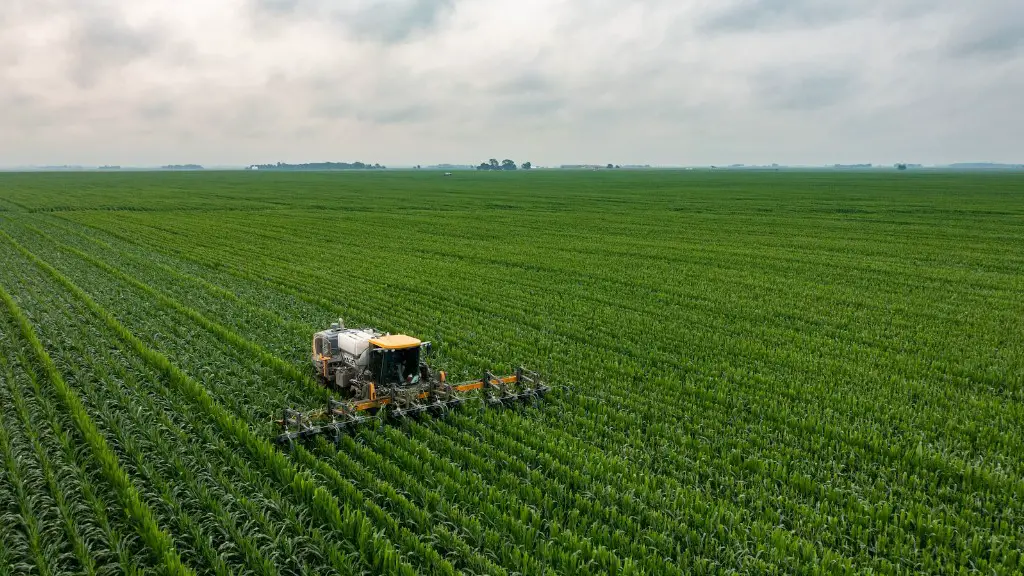Over time, people began to Domesticate plants and animals, which led to the development of agriculture. Agriculture allowed for the production of surplus food, which resulted in the growth of civilizations. Foragers turned to agriculture because it was a more efficient way to procure food.
There are many reasons why foragers might turn to agriculture. One reason might be that the foragers are running out of food because of overhunting or overgathering. Another reason might be that the foragers want to settle down in one place instead of constantly moving around.
What is the main reason why people did not return to foraging?
The hunter-gatherer way of life began to change about 10,000 years ago, when people in some areas of the world began to switch from foraging to farming. This change was due to a number of factors, including a settled way of life, population growth, and the abundance of food.
The first farmers began to settle down in one place, which allowed them to accumulate more belongings and possessions. This settled way of life led to the development of new technologies, such as the plow and the irrigation system.
Population growth was another factor that contributed to the switch from foraging to farming. With more people came the need for more food. Hunter-gatherers could only provide so much food for their families, so farming offered a way to produce more.
The abundance of food was also a factor in the switch from foraging to farming. In some areas, the land was so fertile that crops would grow without much effort. This made farming a more attractive option than foraging, which often required long hours of work with little to show for it.
Foragers such as the Ju/’hoansi do not live on the brink of starvation, despite popular misconceptions. They have a wide variety of food sources, and they are expert at finding and using them. They also have a deep knowledge of the natural world, which helps them to predict when and where certain food sources will be available.
What is food production as opposed to foraging quizlet
Food production is based on domesticated plants and animals and the goal of food producers is to enhance the quality and biomass of their domesticates. Food foraging was the original human economic adaptation. Foraging is the process of searching for food by animals. It includes searching for food sources, such as fruits, vegetables, nuts, insects, and small vertebrates.
Foraging is the practice of collecting wild plants and animals for food. This means that foragers only use resources that are freely available in the environment, without cultivated them. In contrast, food production involves the cultivation and domestication of plants and animals. This means that food producers actively manage these resources in order to increase yields. While foraging is a more sustainable way of obtaining food, it is often less reliable than food production. This is because foragers are reliant on the availability of wild resources, which can fluctuate due to factors such as weather and climate.
Why did humans turn from foraging to agriculture?
For decades, scientists have believed our ancestors took up farming some 12,000 years ago because it was a more efficient way of getting food. However, a new study suggests that the true reason may have been to make sure they had enough to eat during lean times.
Population pressure may have caused increased competition for food and the need to cultivate new foods; people may have shifted to farming in order to involve elders and children in food production; humans may have learned to depend on plants they modified in early domestication attempts and in turn, those plants may have come to depend on humans for their survival.
How did foragers become farmers?
Agricultural communities were some of the first human settlements. They date back to around 10,000 years ago, when humans began domesticating plants and animals. This transition from a nomadic hunter-gatherer lifestyle to a more settled way of life allowed families and larger groups to build communities.
Hunter-gatherer cultures forage or hunt food from their environment. Often nomadic, this was the only way of life for humans until about 12,000 years ago when archaeologic studies show evidence of the emergence of agriculture.
How do the diets of foragers differ from those of agricultural peoples
It is interesting to note that those living in agricultural societies have a much different diet from their hunter-gatherer counterparts. In hunter gatherer societies, food is varied and everything edible in nature is up for grabs. Agriculturists, conversely, tend to rely on a few crops for most of their food. This difference in diet is likely due to the different lifestyles of these two groups of people. Hunter gatherers are constantly on the move, searching for food, while agriculturists have a more stationary lifestyle and can devote more time to planting and harvesting crops.
The change from hunter-gatherer to farmer was a long and gradual process, without any one specific event that marks the switch. Instead, a number of different factors created the conditions that made farming possible and desirable. Property rights, small group size, and ‘conservatism’ (the preference for familiar ways of doing things) all played a part in the emergence of agriculture.
The move to farming allowed humans to settle in one place, which led to the development of civilizations and the advancement of human knowledge and technology. Agriculture has had a profound impact on the history of the world, and it all started with a few small changes in the way our ancestors lived their lives.
When did the transition from food foraging to food production begin?
From as early as 11,000 BCE, people began a gradual transition away from a hunter-gatherer lifestyle toward cultivating crops and raising animals for food. This transition had a profound impact on human societies and the way we live today. Hunter-gatherers were typically nomadic, moving from place to place in search of food. This way of life was very demanding, requiring a great deal of time and energy to be successful. Cultivating crops and raising animals allowed people to settle down in one place and have a more reliable source of food. This allowed for the development of more complex civilizations with cities, governments, and writing.
Herding is a great way to get your food and other resources without having to rely on foraging or agriculture. You can domesticate animals and then take them with you wherever you go. This way, you always have a ready source of food and other materials. Plus, it’s a lot of fun!
Why farming is better foraging
The main difference between agriculturists and hunter-gatherers is that agriculturists typically store food, while hunter-gatherers do not. This means that, even if their diet and health is worse, agriculturists are better able to survive bad times.
hunter-gatherer societies had some important advantages: they allowed people more leisure time and better overall nutrition and health than those who lived in farming communities.
What is the advantage of foraging?
There are many benefits to eating wild foods. They are more nutrient-dense than foods coming from commercial agriculture, meaning they contain more vitamins, minerals, antioxidants, and healing properties. Wild foods are also generally less processed and contain fewer toxins. Eating wild foods is a great way to boost your health and wellbeing.
It is thought that early humans began to alter their local communities of flora and fauna for their own benefit through means such as fire-stick farming and forest gardening very early on in our history. Wild grains have been collected and eaten from at least 105,000 years ago, and it is possible that this practice began even earlier. This would have allowed early humans to better control their environment and to make sure that they had a reliable food source.
Final Words
There are a few reasons why foragers might turn to agriculture. One reason is that it can provide a more reliable and predictable food source. Agriculture can also allow for a higher population density, which can lead to increased social interactions and opportunities for trade. Additionally, the development of agricultural technologies can help improve the efficiency of food production.
The main reason foragers turn to agriculture is because it is a more reliable source of food. Agriculture allows for the storage of food, which means that people can survive during times of scarcity. Additionally, agriculture provides a wider variety of food than what can be found in the wild, which helps to ensure that people get the nutrients they need.
